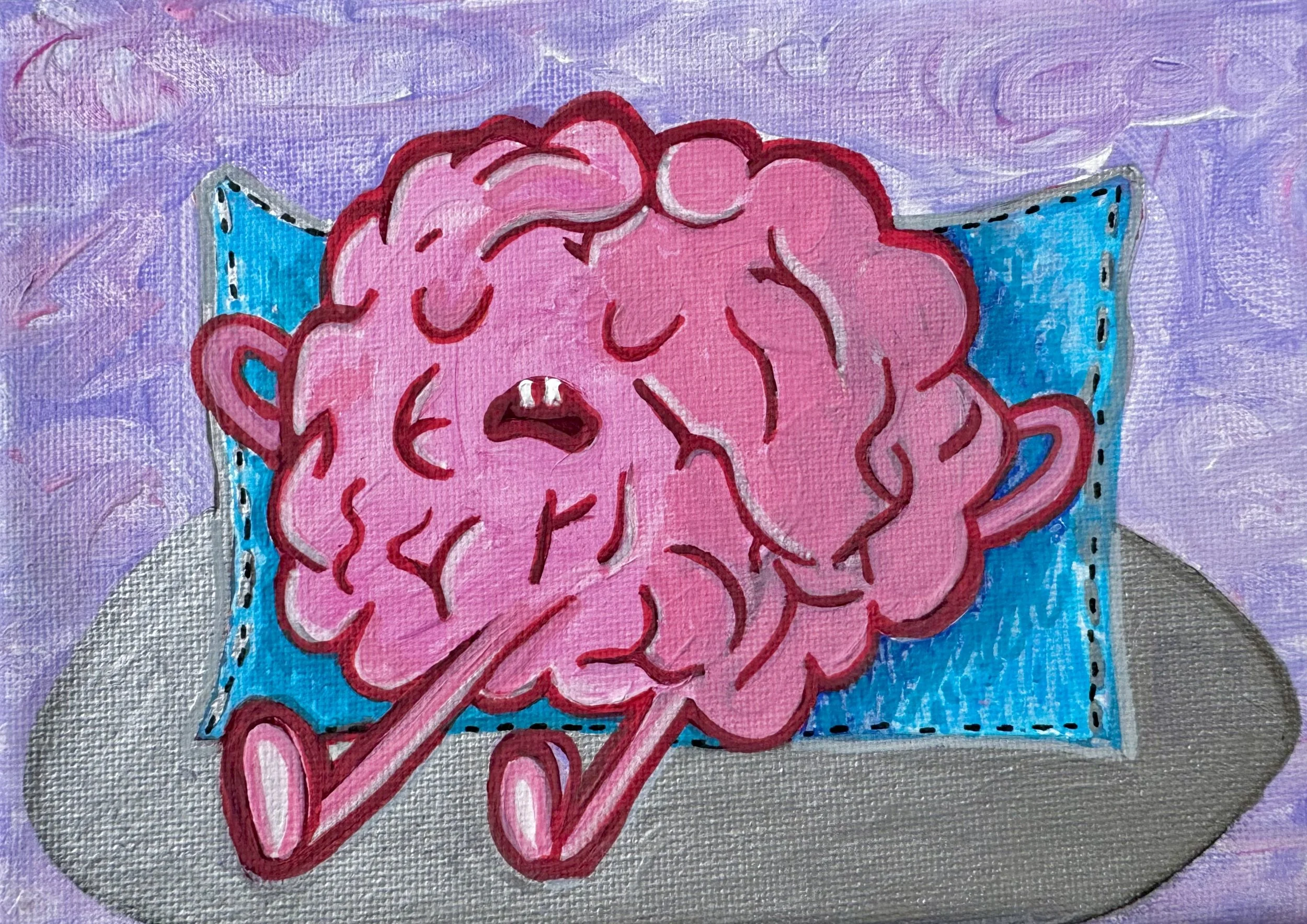GET SLEEP: MAINTAIN A HEALTHY MIND AND BODYA cartoon brain at rest after a long day; painted by Stephanie Oehler
Sleep plays a critical role in maintaining mental well-being and overall health. The brain relies on quality sleep for preserving cognitive functions such as memory consolidation, learning, and emotional regulation. Getting less than 7 hours of continuous sleep per night can result in reduced mental clarity and executive functioning and increased stress, anxiety, and depression.
Beyond mental health, sleep serves as a preventative measure for many diseases. Regular quality sleep strengthens the immune system and reduces the risk of infections and chronic illnesses like diabetes and cardiovascular disease. On the contrary, sleep deprivation or fragmented sleep can weaken the immune system, making the body more susceptible to infection. Furthermore, the development of neurodegenerative diseases such as Alzheimer's is associated with inadequate sleep.
Busy school or work schedules can make it challenging to get quality sleep. However, prioritizing sleep can save time in the long run by making the workday more efficient. Sleep quality can be improved by establishing a regular sleep schedule, limiting distractions before bed, and creating a comfortable sleep environment. Sleep masks or black-out curtains are a great tool to limit light exposure during sleeping hours. By making sleep a priority in your life and practicing good sleep hygiene, you can maintain a healthy mind and reduce the risk of numerous diseases.

